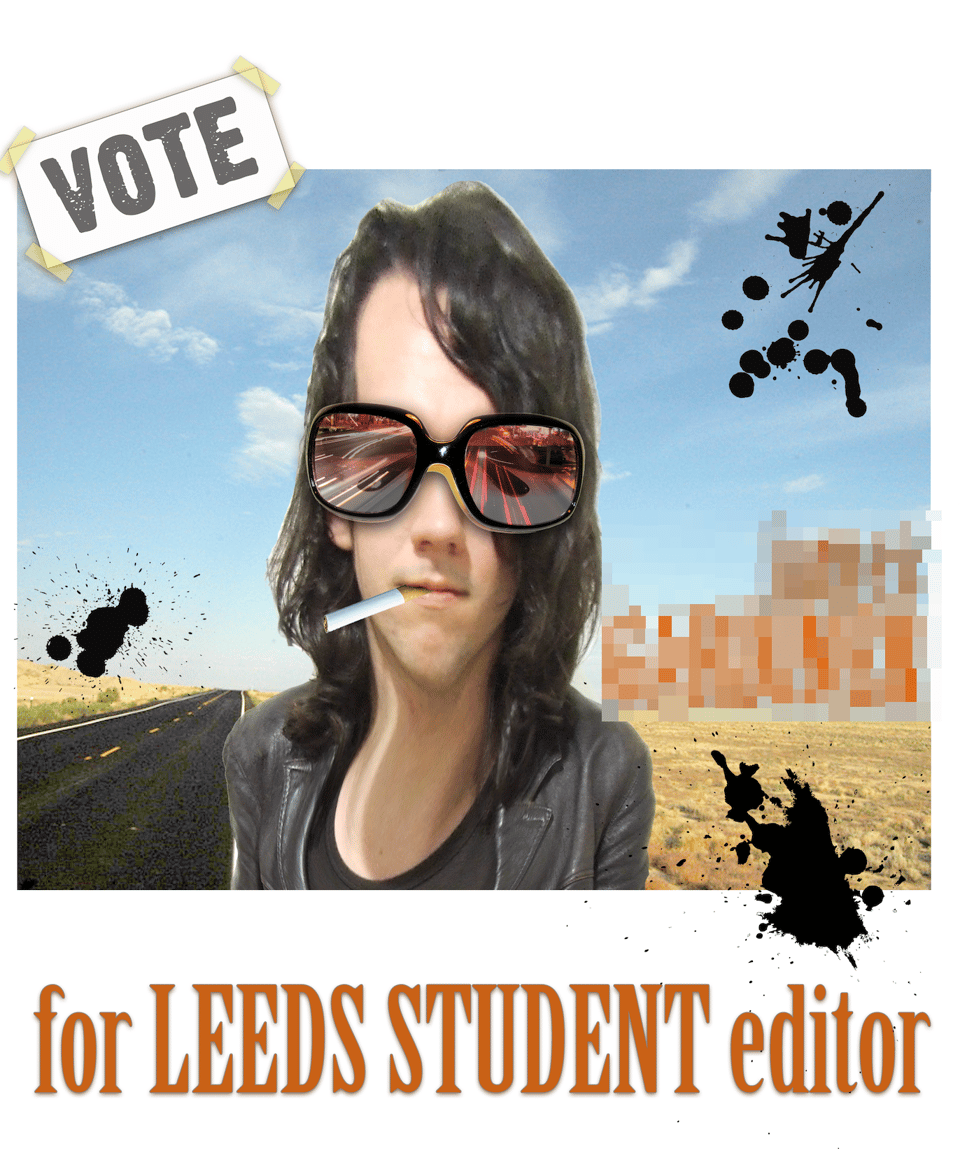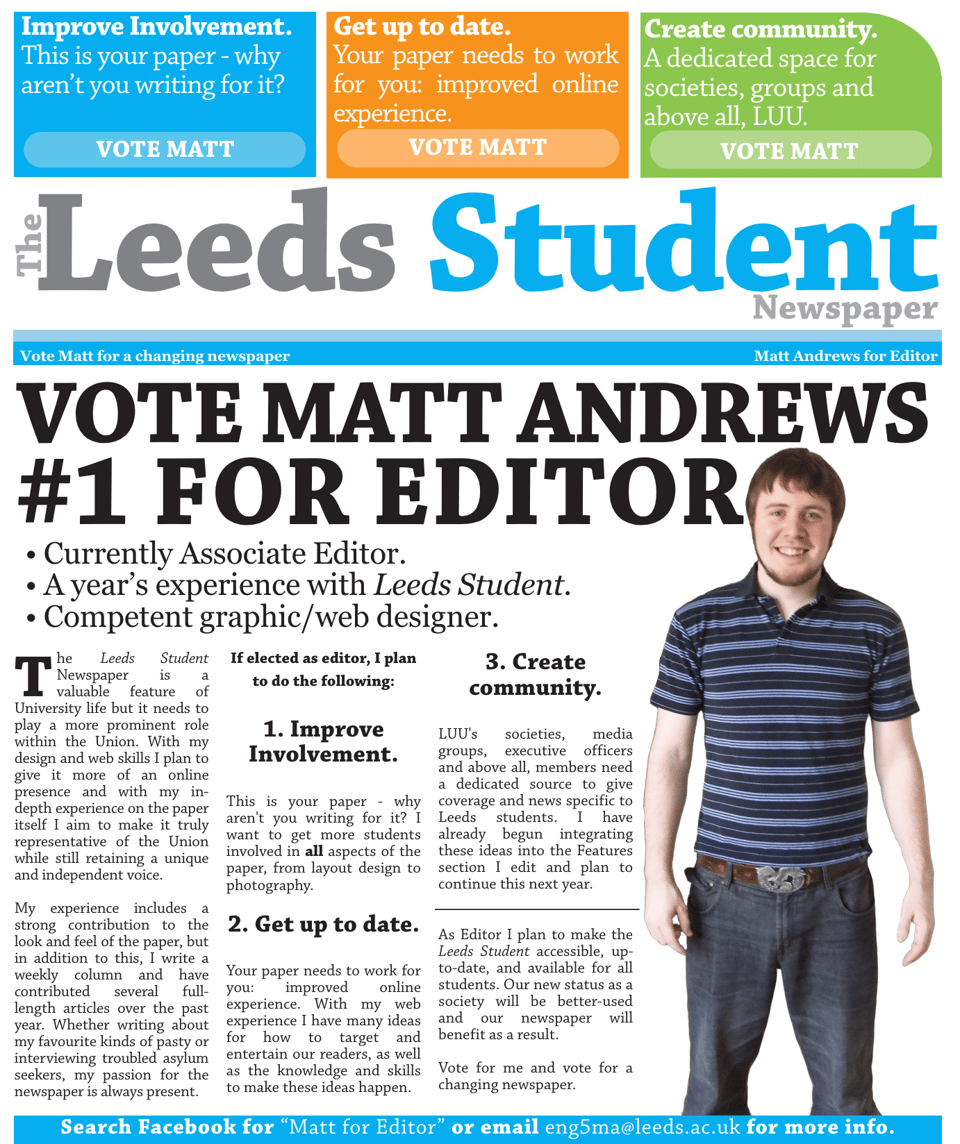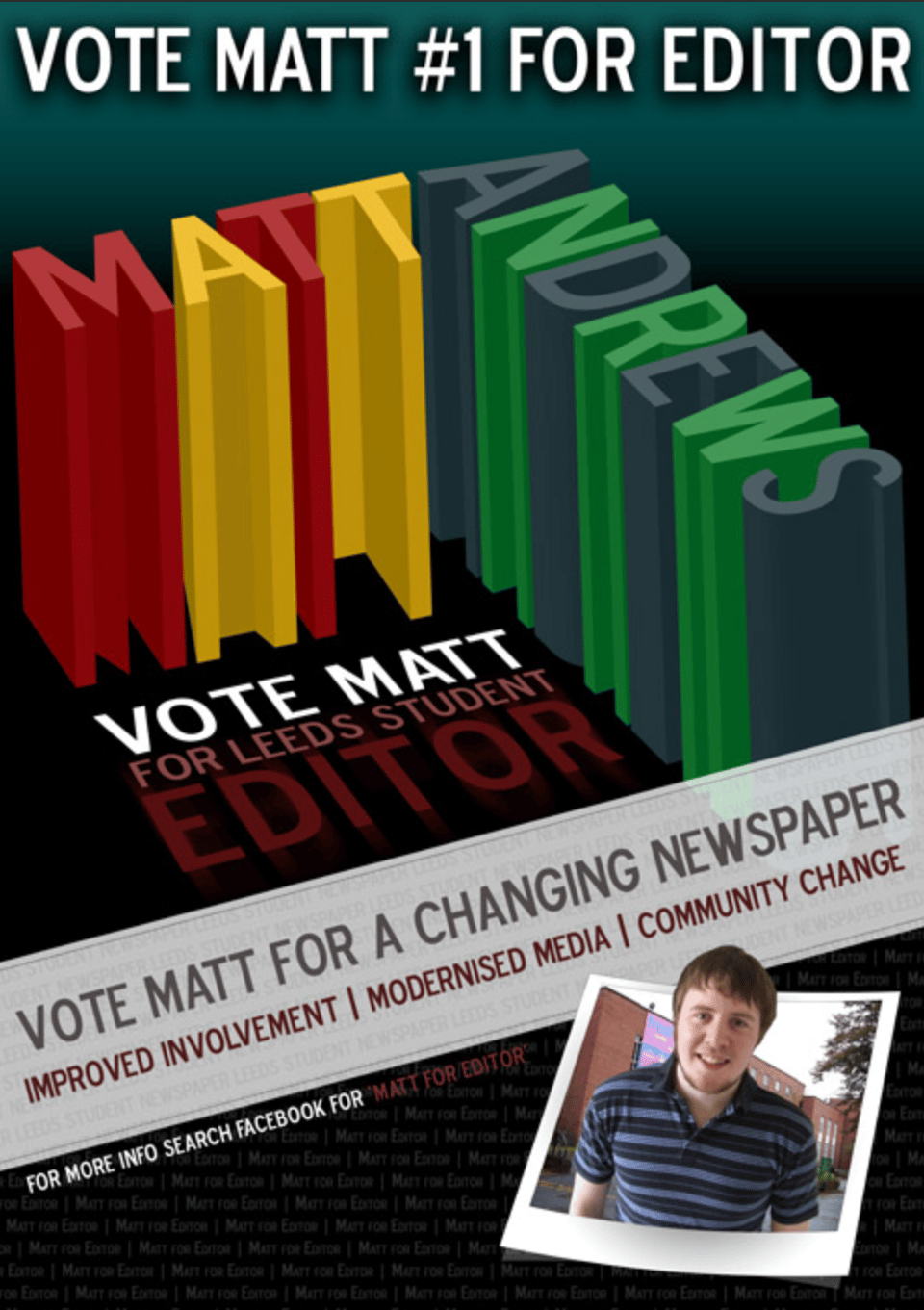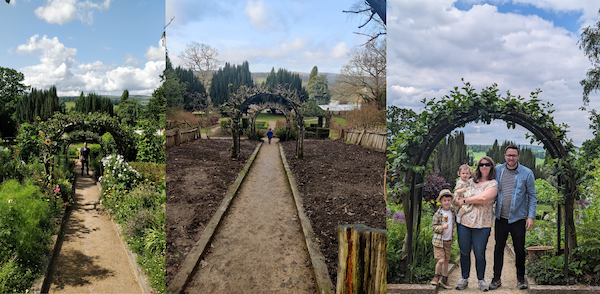Losing the only election I've ever contested
Navigating campus politics, journalism dreams, and unexpected elections in this edition.
I’ve only ever stood in one election in my life, and I didn’t win.
It’s 2007 and I’ve just joined the student newspaper at university. A guy I vaguely know from lectures already works on the paper, and he’s standing for the position of Editor in the upcoming student union elections. I’m a lonely second-year student who’s feeling distant from his housemates, and decide to respond to the call-out for campaign support. I show up at the pub one night to help my friend with his marketing strategy.

I learned a lot: it turns out that students don’t really go for gonzo-inspired posters (Hunter S. Thompson, Che Guevara and Andy Warhol were perhaps cooler touchpoints in the 1960s than the early 2000s), and I also discovered that I was living in blissful ignorance of campus politics until this point. “I’ve got the J-Soc vote”, my candidate friend assured me, and I had to discreetly ask around until I realised this meant the Jewish society, whose bloc vote was as fiercely contested as that of PSG – the Palestinian Solidarity Group.
He didn’t win: a well-connected woman with bags of talent and an absolute journalistic knack for uncovering stories did (and she’s now a well-known writer for a paper you’ve definitely heard of). But it did ignite a kind of hunger for power and audience in me, hidden away until this moment.
The dreams of youth
I’d always wanted to be a writer, ever since being a kid and learning how to spell “written and illustrated by Matthew Andrews” on the front cover of the “books” I made at school. I dabbled in music criticism as a teenager (including a retrospectively-hilarious period as a wannabe columnist with the pen name “Matt Anachronism” in a local music zine in Nottingham).
I was hooked: I ended up becoming a deputy editor of the paper during my final year of university. As the end of the academic year approached and I began to reluctantly think about my post-university career options, the idea of taking on the editorship myself occurred to me.
This was a paid position, lasting a full year, and plenty of the former occupants of the role went on to successful media careers. In my year as a deputy editor I’d worked mainly on features, and played my part in some decent stories – including interviewing some East African asylum seekers who were illegally attending the university in defiance of their refugee status, supported by some kind-hearted academics. Maybe I could win this thing?
I’d have to stand against my friend, though – he was giving it another try. I spoke to him and sought his approval, and he gamely agreed (and, I suspect, was confident that he’d still get the Jewish vote, if such a thing really existed). I also knew that another friend was planning to stand, and in the end it came down to a run-off between the three of us.
This third friend was another born journo (and continues to shine in the industry today). Scrappy, charming and charismatic, he left it so late to submit his candidacy papers that I took pity on him and helped him get them printed out, minutes before the deadline. You can probably guess how this act of generosity paid off for me.

It was a strange situation to find myself in: 21 years old and making posters with my face on, painting banners with “VOTE MATT FOR EDITOR” in huge letters; spending all my non-lecture moments handing out flyers to strangers trying to quietly enjoy a sandwich in the student union cafe; popping into lecture halls to make quick stump speeches before the professor arrived. In retrospect, I don’t know where this confidence and dynamism appeared from, but it was propelling me forward.
I remember feeling smug seeing my late-submitting friend doing his own campaign around campus: he was wearing a huge cardboard truck around his waist (which related to a pun around his name) and I knew I’d never have gone for something so obvious for my campaign. I’d cleverly made my flyers look like a miniature copy of the newspaper itself, with a whole article (in 6 point font) explaining how I’d modernise the digital production workflow.
Voting eventually closed and everyone took down their banners, claimed back their expenses for printing flyers, and abandoned their painted cardboard models, retiring to the Old Bar for cider and gossip about who was going to win Equalities Officer.

The results were announced, and the newspaper editorship went to: our friend with the cardboard lorry. I came a distant third, with a couple of hundred votes to my name. I shook hands with the other candidates and we laughed together at the absurdity of it all. The three of us were as different as we could’ve been, but we remained friends, continued to work with each other until the academic year ended, and only occasionally made snide remarks about the events of the election.
One-horse race
We’re in election fever in the UK as I type, albeit on a slightly more serious scale. Our unelected Prime Minister stood before the nation on a rain-soaked Wednesday and finally announced the beginning of the end.
I couldn’t help share the news of the surprise plebiscite as I left the house for the school run. “Have you heard the news?” I yelled to a passing parent friend. “Election just announced!”.
Another parent—a stranger—passed us and the excitement on her face was palpable. She asked me to clarify, and as I did, her glee was obvious. “Finally”, she said. “Yeah… let’s get them out”, I said, conspiringly. “Get the bastards out”, she confirmed – a wonderful, heartening display of confidence and community.
This wasn’t like my election: trying to force apathetic students to give a shit about who edits their student newspaper. The people in this country have been crying out for this one to come along, hanging on the news stories speculating on the date of contest. Now it’s here, and we don’t need cardboard props or 1960s pastiches. We just need to, well, get the bastards out.
Mini-feels this week
Family portrait
This email is a few days late because I’ve been away on a family holiday all weekend. We went to a favourite of ours, Chatsworth House, and I paused to take a photo at a beauty spot we’ve photographed before:

As I took the photo of Maddy, I became aware of two Gen Z women awkwardly watching. As we finished up, one asked me “Would you like us to take a photo of all of you?” – then quickly followed up with “… and would you take one of us?”
We laughed and they took the shot you see above (on the right), then I grabbed their iPhone to return the favour.
The pressure of the moment weighed heavy on me: this was surely going to grace their Instagram (or whatever photo app hip young people use these days), and I needed to get it right. “This looks so great!” I yelled happily, so proud of myself for the observing rule of thirds, the lighting, the compositional genius of it. Then I realised I just sounded like a weird, nerdy dad, handed the phone back, and went on my merry way.